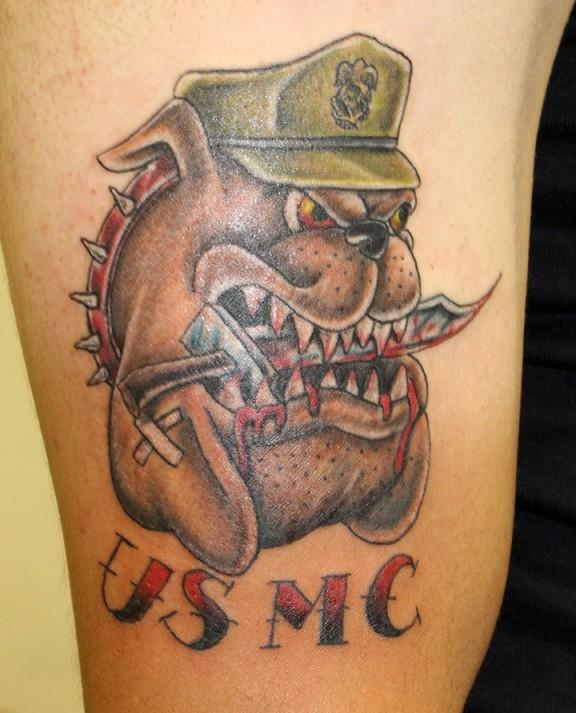
There are two basic types of military tattoo designs, they are the modern and the historic ones. Usually, the tattoos which are of a historic military nature contain some logos and mottos which act as a representation of the men who have been famous in the fighting history. Meanwhile, the modern military tattoos indicate a representation of the different divisions or a certain artwork which have been used as the armed forces' smaller divisions. When you are getting these tattoo designs, there are some very basic guidelines that need to be followed.
For the personnel who are in the military, they must make sure that the tattoo they choose is in line with their particular branch's imposed codes. Most of the tattoos which these people get is placed on their upper arm so that they can be concealed with their uniform while they are on duty. In the military, there are some very specific requirements regarding tattoos.
For this reason, you have to make sure that you will not encounter some professional problems when you are in the military and get decide to get a military tattoo. Most of the tattoos worn by military soldiers imitate their unit device like the famous "Screaming Eagle" device which is often used by airborne soldiers. Even if these tattoos are often associated with the sailors, their popularity has even expanded to the other military branches.
In short, you must not choose the tattoo design of some modern military divisions if you have not yet served that division. This is because it is considered as an insult to those that have served in the division. It can even be compared to bragging about joining the military if you have, in fact, never served at all. Such tattoos should be considered off limits to those who have never served in the specific unit. Because of this, you should never get an advanced tattoo with this design, even if you are only making a presumption that you will be accepted in the particular unit.
For the personnel who are in the military, they must make sure that the tattoo they choose is in line with their particular branch's imposed codes. Most of the tattoos which these people get is placed on their upper arm so that they can be concealed with their uniform while they are on duty. In the military, there are some very specific requirements regarding tattoos.
For this reason, you have to make sure that you will not encounter some professional problems when you are in the military and get decide to get a military tattoo. Most of the tattoos worn by military soldiers imitate their unit device like the famous "Screaming Eagle" device which is often used by airborne soldiers. Even if these tattoos are often associated with the sailors, their popularity has even expanded to the other military branches.
In short, you must not choose the tattoo design of some modern military divisions if you have not yet served that division. This is because it is considered as an insult to those that have served in the division. It can even be compared to bragging about joining the military if you have, in fact, never served at all. Such tattoos should be considered off limits to those who have never served in the specific unit. Because of this, you should never get an advanced tattoo with this design, even if you are only making a presumption that you will be accepted in the particular unit.
















No comments:
Post a Comment